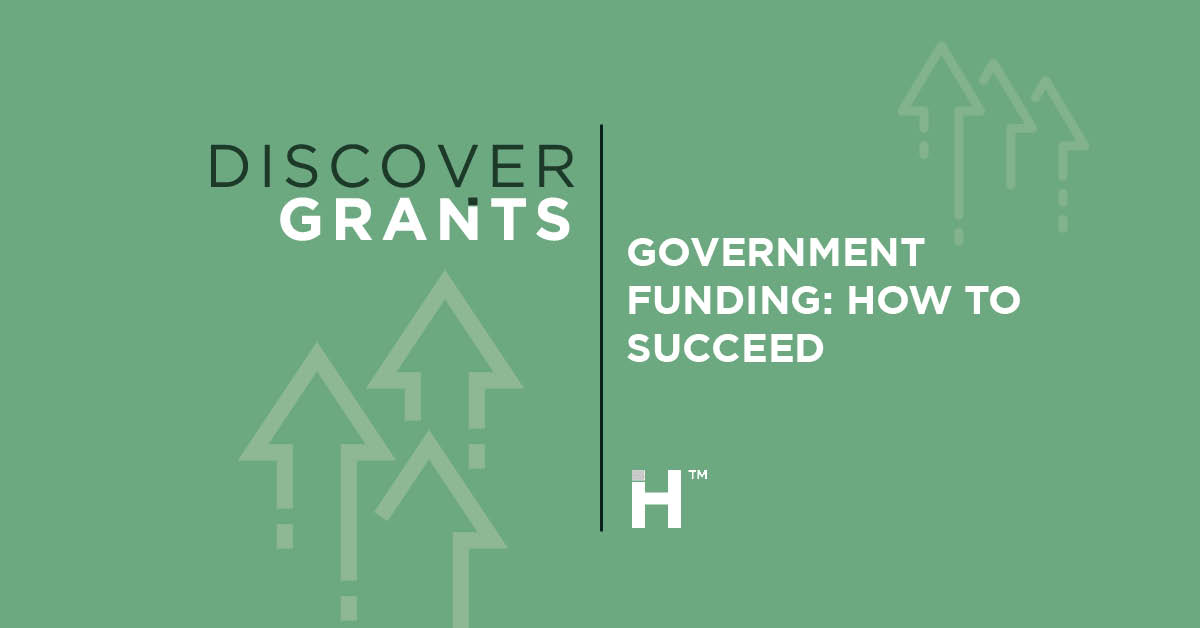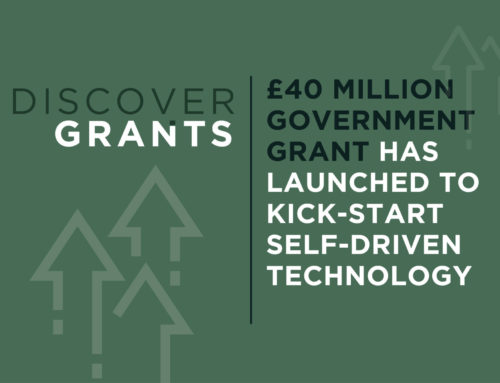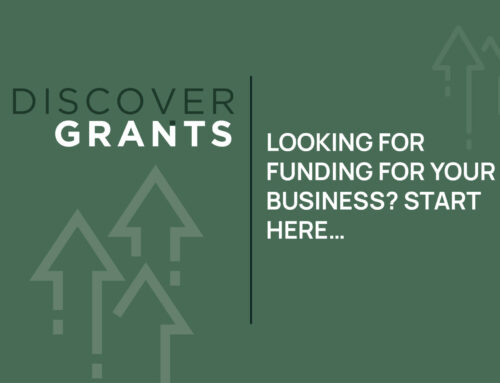Where can I find government funding opportunities?
If you’re a business owner, you may be wondering how to secure government funding for your business. The UK government has many grant funding opportunities available for all types of businesses.
What type of government funding is available for my business?
There are a whole plethora of grant and funding opportunities awarded from the government. They range from cash grants for small businesses to funding for start-ups to growing businesses and SMEs to the self-employed. Government funding offers grants across many business sectors from agriculture to science. There are funding opportunities to innovate, support the arts and help local communities via local authority grants.
Where can I find government funding opportunities?
There are multiple sites offering government funding opportunities across the UK. The only issue is it can take time to track down the right funding opportunity for your small business or grants for businesses in the UK.
Our Grant Tracking Service hosts all business grant and funding opportunities for UK businesses. Our team manually track grants from over 1,500 data points. Once they’ve identified an opportunity, they upload each one to our Discover Grants platform.
You are then able to filter the results by keyword, sector, and price. This allows you to find the perfect grant for your business.
The best part – it’s completely free. All you have to do to gain access to all business grants and funding opportunities is register your details. You’ll then have access to over 1,700 live grants.
7 tips to help secure government funding with your next application
Applying for government funding can be highly competitive. You want to ensure that you stand out from your competitors. Here are our seven tips to help increase your chances of success when applying for government funding.
-
Make sure you’re eligible and it’s the right opportunity for your business
Once you’ve found a grant opportunity, you must establish if you’re eligible to apply. There is no point in starting an application if you’re not eligible. It sounds simple, but you’d be surprised how often this happens. You should read the grant documents and eligibility criteria thoroughly before you start. Furthermore, you should make sure that the opportunity matches your business. Ask yourself:
- Do the funder’s aims and objectives match your own?
- Do you need to match the amount of funding?
- Are they offering the amount of funding you require?
Even if you are eligible for a government funding opportunity, it doesn’t always mean it’s suitable for your business/project. You should be finding opportunities that suit your objectives, targets and ethos. You should never change your business or project to fit an opportunity. Even if you do, a funder will see right through it and likely not award you funding.
Once you’ve established that it’s an opportunity worth going for, and you’re eligible, you can start planning your response. It’s best to start planning as soon as possible. Working back from the submission date can help you manage your time.
-
Look at things from the funder’s perspective
Put yourself in their shoes – what would you want to know?
Funders will have an overall vision they’re trying to achieve and a key set of guiding principles. Your bid response needs to explain how you’ll achieve this. The awarding body wants to feel like the bidder has truly understood their agenda. They want to feel that a bidder is bidding for funds that link to their own objectives.
Address their aims directly. If they’re looking to implement a new system change then state how you will do that. If the programme aims to strengthen and connect communities then emphasise this in your first few sentences and paragraphs.
Make life a little easier for the funder by clearly formatting your response. Use heading and subheadings that are in the guidance notes and review criteria. This will also help ensure that you have answered every point within the review criteria.
Avoid overly technical jargon and don’t assume that they know anything. Sometimes the awarding bodies don’t know much about the area of business the grant is for. You should clearly and concisely explain every aspect within the word/page/character counts.
-
Sustainability is key
Government funding often likes to see you detail sustainability. Funders want to see how your solution and the taxpayer’s money will have a lasting impact. They don’t want to keep pumping money into short-term solutions. They are looking to give it to an organisation that is finding a solution to the source of the problem. In your bid response, you want to show how the grant will be sustainable and long-lasting.
No matter the sector, you must include the social, economic and environmentally beneficial factors of your bid. Social value is of high priority in any form of grant or procurement process – particularly in the public sector. You must include the positive outcomes and how these will continue after the funding has come to an end. If you do this, your chances of a successful bid for funding will increase.
-
Demonstrate innovation
Innovation is another aspect that government grants love to see and support. If your business or project is innovative in any way, demonstrate this. A winning bid will have innovative solutions.
Funders love to see innovation and that’s true for any sector and any type of tendering. Ground-breaking and exclusive solutions that lead the way are what funders are looking for. Think outside the box and ask yourself if your organisation has a truly unique solution to an issue.
-
Be prepared to include a full-proof business/project plan
It’s a given that funders want to see a full-proof business or project plan. You should also realistically evaluate the running costs and what the government funding will be spent on. You’ll need to demonstrate a sound methodology for money management. Including past projects where you have handled the cash flow is strengthen your application. It will also reassure funders that the money they give you is in safe, reliable hands.
To qualify for government funding for new businesses you will likely need to demonstrate that you fulfil certain criteria. This may include detailing your business plan which would be ok if you are applying for government small business grants. If you are a new business, you will need to create one.
This may involve providing a statement of your company’s finances over a certain period. If you’ve already started trading, you will likely need to provide examples of your business’s position and balance sheet. If you’re a start-up, it may require you to provide projections of your profits and losses in the coming years.
-
Always proofread your response
Always proofread your grant application before you submit it. You only get one chance to make a first impression. A government funding proposal riddled with spelling and grammatical errors won’t look professional.
If you’ve spent days working on your proposal, wait a day or two before reading over it. This will allow you to look at it with a fresh pair of eyes. You’ll be better able to spot any mistakes this way. Additionally, you can ask a colleague or a friend to look over it. They can check it’s in line with the specification and avoid any errors.
You should do at least a two-stage editing and proofreading session before submitting the final document. This is why it helps to plan your time and complete the proposal before the submission deadline. This way, you can make any amendments you may spot before you submit. You should factor this into your planning and time management.
Before you submit your proposal for government funding, you should ask yourself:
- Is anything unclear?
- Am I answering what they’re asking?
- Could something be explained further?
- Am I justifying why I need the funding?
- Is there any awkward language?
- Am I rambling at any point?
-
Ask for feedback
If you don’t secure government funding the first time around, don’t be disheartened and keep trying. Always ask for feedback from the evaluator. This can help you spot the areas where your application was weaker, and you can improve for next time.
If you’re completely stuck or simply don’t have the time to spare to submit your application – we can help. You shouldn’t miss out on government funding for your business simply because of this. You can outsource a grant application to Grant Writing Consultants. They can help optimise your chances of success. They know how best to formulate your response and your business to funders. Grant Writers are experts in what they do and know how to tailor your response to the specification.
If you’re struggling with your grant application, a funding writer can help grow your business.
Our Services
Grant Writing
Our Grant Writing Service is for businesses who want to start applying for grants, but don’t know where to begin. They can also help businesses who have been applying for grants but aren’t seeing success.
Our Grant Writing Consultants have over 60 years of experience in bidding for funding and grants. From start-up business grants to self-employed business grants. They can take care of the whole thing for you – they’ll even submit it on your behalf.
Get in touch to find out how we can help your business grow!
Grant Tracker
You can find government funding grants and others like them on our Business Grant Tracker. Currently, we have over 1,700 live business grant and funding opportunities. Our team have manually tracked 1,500+ data streams searching for business grant opportunities. Each one is then uploaded to one central system, streamlining the process.
All you need to do to gain access is sign up for free.
Find more helpful tips and advice in our blogs. We cover topics including:





